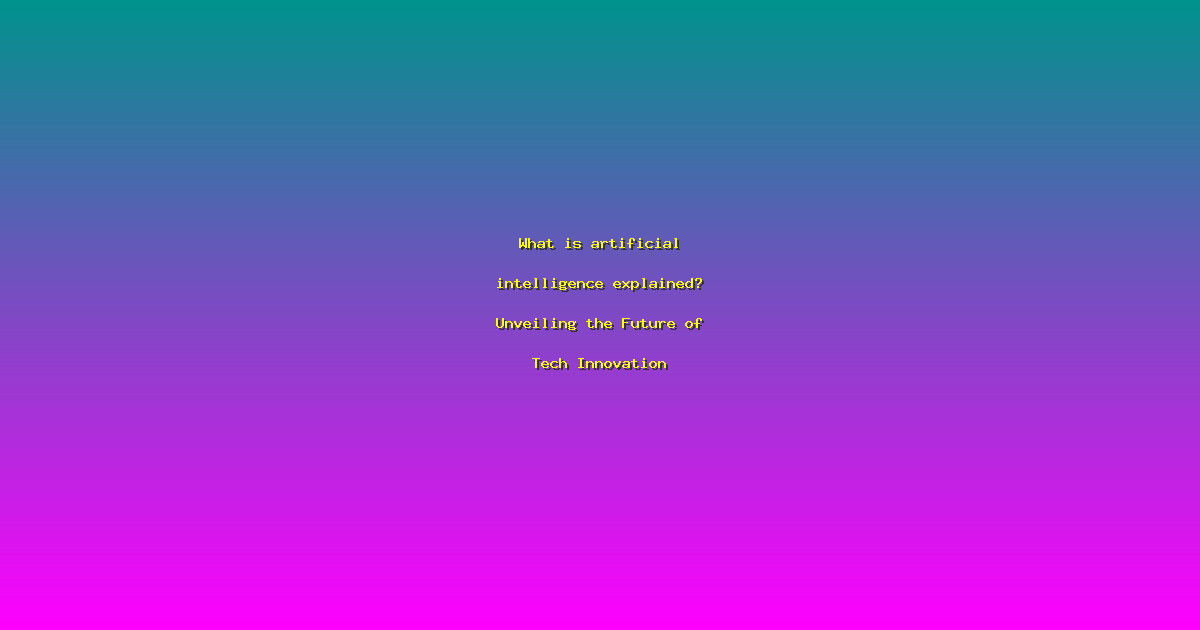What is Artificial Intelligence Explained? Unveiling the Future of Tech Innovation
Artificial Intelligence (AI) has become an integral part of our daily lives, driving innovations and transforming industries. This article aims to demystify the concept of AI, its diverse applications, and its implications for the future.
Understanding Artificial Intelligence
Artificial Intelligence refers to the simulation of human intelligence in machines that are programmed to think and learn like humans. These machines can perform tasks that typically require human intelligence, such as visual perception, speech recognition, decision-making, and language translation. AI encompasses several technologies, including machine learning, natural language processing, and robotics.
Applications of AI
AI is revolutionizing various sectors, from healthcare and finance to automotive and entertainment. In healthcare, AI is used for diagnostics, drug discovery, and personalized patient care. In finance, AI algorithms predict market trends, manage risk, and automate financial transactions. The automotive industry is witnessing a transformation with self-driving cars powered by AI, while the entertainment industry uses AI for content recommendation and personalization.
The Future of AI
As AI technology continues to evolve, its impact on society will only increase. Future advancements could lead to more autonomous systems in industries, potentially reducing human error and increasing efficiency. However, this also raises ethical questions and the need for robust regulatory frameworks to ensure AI's benefits are harnessed responsibly.
FAQs
What are common misconceptions about AI?
One common misconception is that AI will replace all human jobs. While AI can automate many tasks, it also creates new job roles and enhances human capabilities.
How does AI impact privacy?
AIs that process personal data can impact privacy if not managed properly. Ensuring data security and implementing strict privacy laws is crucial.
What are the key challenges in AI development?
Key challenges include developing AI systems that are transparent and explainable, ensuring they are free from bias, and creating robust ethical guidelines.
Can AI be creative?
Yes, AI can generate creative work such as art, music, and literature. However, the creativity is based on patterns and data it learns from rather than human-like creativity.
How does AI contribute to environmental sustainability?
AI can optimize energy use, reduce waste, and improve resource management, contributing to environmental sustainability.
What is the role of AI in healthcare?
In healthcare, AI can analyze large datasets to improve diagnostics, personalize treatment plans, and accelerate drug discovery.

